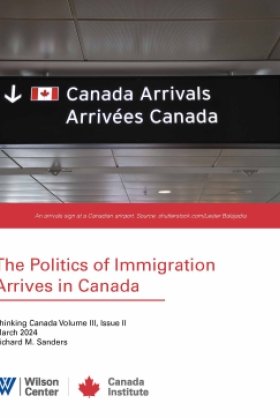New Book Discussion: <i>Top Secret: When Our Government Keeps Us in the Dark </i>
Overview
Commentators Walter Pincus, National Security Journalist, The Washington Post; Daniel Marcus, Law and Government Fellow, Washington College of Law, American University.
A program organized by the Division of U.S. Studies to examine Geoffrey Stone's Top Secret: When Our Government Keeps Us in the Dark became a more general discussion of the topic of government secrecy and the public's rights to know, when confusion about scheduling prevented the author from participating. Daniel Marcus summarized the themes of Stone's volume for the audience before he and Walter Pincus added their own comments.
Stone is a leading author on the First Amendment. Top Secret explains how the free speech clause of the First Amendment applies to the issue of disclosure of classified information. The issue was raised in December 2005, for example, when the New York Times released information about the National Security Agency's (NSA) secret warrantless wiretapping of U.S. citizens' phone calls abroad. It had been raised earlier in New York Times v. United States (1970), when the government filed for an injunction against the New York Times to prevent it from publishing the classified Pentagon documents that it received from a Pentagon employee. The U.S. Supreme Court ruled against the injunction, but did not answer the question of to what extent classified government documents can lawfully be disclosed by the media. The question of how to balance the government's asserted need for secrecy against the public's right to know therefore remains both unanswered and contentious.
Stone's book argues for a balanced approach to the issue. He contends that the First Amendment rights of government employees are not violated when the government punishes them for disclosing classified materials. The press, on the other hand, should not be prohibited from publishing classified information it has received from government employees, unless the disclosure of such information would create an imminent and serious threat to national security and would not meaningfully enhance public debate. Disclosing classified battle plans or troop movements, for instance, would pose an imminent threat to U.S. soldiers without adding substantially to public debate. The burden of proving that the classified information is an imminent threat and unessential to public debate, however, rests with the government.
From the point of view of a reporter who has covered national intelligence issues for approximately 30 years, Walter Pincus finds the federal government's classification system to be largely arbitrary and, in some cases, illegal. "There are no penalties for over-classification," he noted, so that the impulse of government officials to overclassify potentially embarrassing information goes unpunished. Reporters, for their part, do not steal government information; it is given to them. A reporter violates a criminal statute only if he/she offers something in exchange for the classified information. Pincus noted that reporters routinely take any information potentially affecting national security to their editors, and then give the government the opportunity to comment prior to publishing it. Journalist Dana Priest, for example, spent months checking and rechecking information about the CIA's "black sites" (secret prisons) and then questioned government officials before the Washington Post published her November 2, 2005 piece on the subject. These precautions, in Pincus' experience, have sometimes led newspaper publishers to succumb to government pressure to withhold information or publish it in an abridged form.
In Pincus' opinion, the government's attempts to prevent the disclosure of classified information should focus not on the media but on its own employees. The government tries to discourage dissemination of information by targeting third parties, as in its current Espionage Act prosecution of employees of the American Israeli Public Affairs Committee (AIPAC) for revealing classified information they received from a government source (United States v. Steven Rosen and Keith Weissman). The case is particularly important, Pincus believes, because the precedent of third-party prosecution potentially could apply to the press. Stone proposes a federal "shield law," similar to those that exist in a majority of the states, to protect the right of journalists to disclose classified information critical to public debate. Pincus, who refused to testify in the Valerie Plame case until his source spoke with the prosecutor and released Pincus from the promise of confidentiality, nonetheless argued against such a law. Facing the prospect of penalties for disclosing sensitive information, he believes, will lead journalists to weigh carefully the merits of information they receive from a source before printing it.
Philippa Strum questioned whether the AIPAC case is a useful analogy for freedom of the press. The media has special rights under the First Amendment because it is an important tool for the citizenry, who are the ultimate authorities in a democratic system and who must have access to information if they are to make the wisest possible choices. Employees of an interest group, she argued, do not regularly give the information they acquired to the public, and so logically should not be accorded the media's special privilege. Marcus added that unlike Pincus, most members of the press maintain that a federal shield law of the kind proposed by Stone should be enacted, especially since the Supreme Court does not interpret the First Amendment as protecting journalists' privilege. Marcus remains optimistic, however, that the press can preserve its rights despite the trend in U.S. courts to not support reporters' privilege, as he sees no sign that the federal government is currently inclined to prosecute the press for disclosing information that the government would prefer to keep secret.
Drafted by Acacia Reed
Philippa Strum, Director, Division of U.S. Studies 202-691-4129
Thank you for your interest in this event. Please send any feedback or questions to our Events staff.










